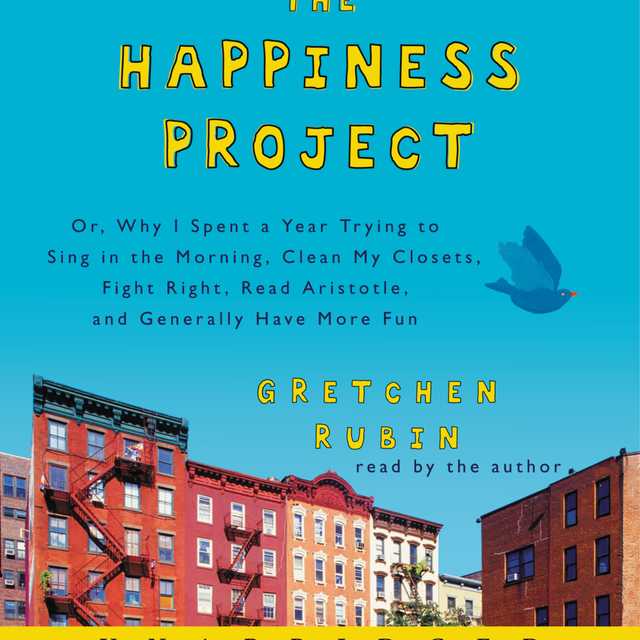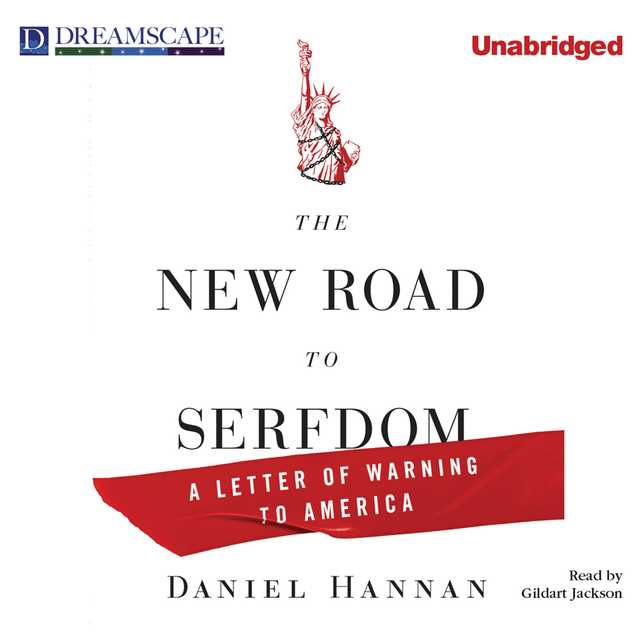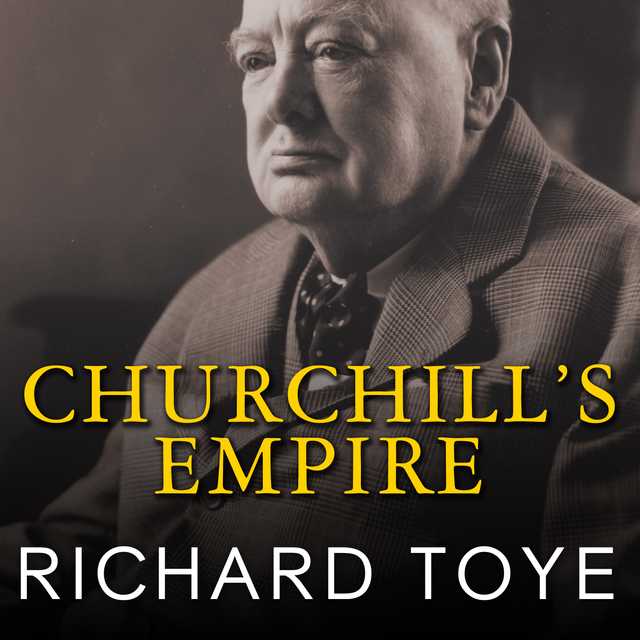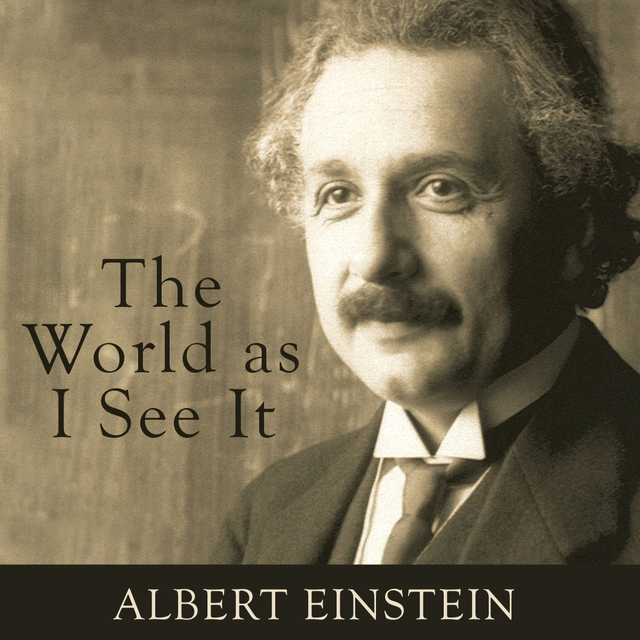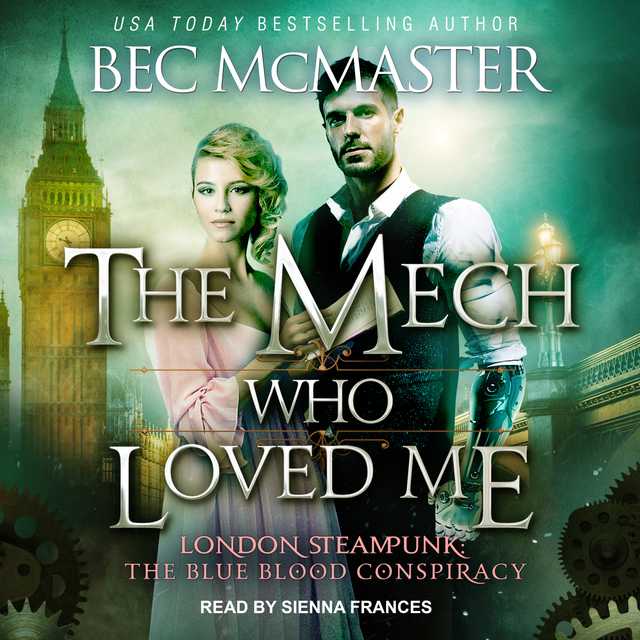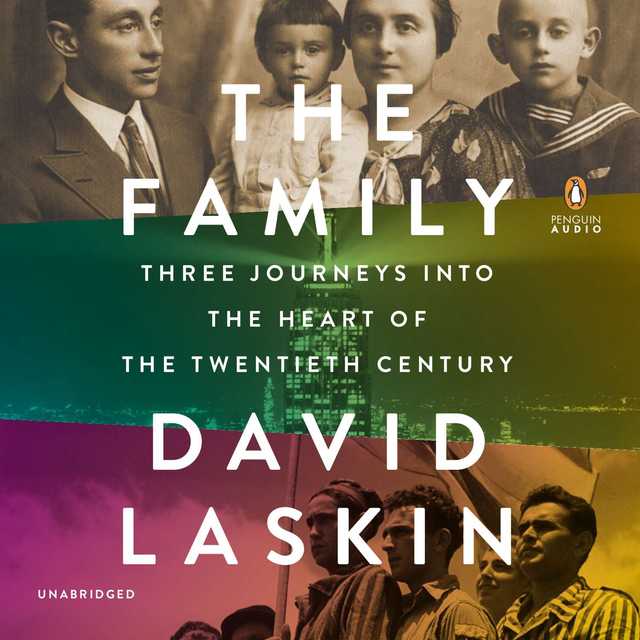The Happiness Project Audiobook Summary
#1 New York Times Bestseller
“An enlightening, laugh-aloud read. . . . Filled with open, honest glimpses into [Rubin’s] real life, woven together with constant doses of humor.” —Christian Science Monitor
Gretchen Rubin’s year-long experiment to discover how to create true happiness. Drawing on cutting-edge science, classical philosophy, and real-world examples, Rubin delivers an engaging, eminently relatable chronicle of transformation.
Gretchen Rubin had an epiphany one rainy afternoon in the unlikeliest of places: a city bus. “The days are long, but the years are short,” she realized. “Time is passing, and I’m not focusing enough on the things that really matter.” In that moment, she decided to dedicate a year to her happiness project.
In this lively and compelling account, Rubin chronicles her adventures during the twelve months she spent test-driving the wisdom of the ages, current scientific research, and lessons from popular culture about how to be happier. Among other things, she found that novelty and challenge are powerful sources of happiness; that money can help buy happiness, when spent wisely; that outer order contributes to inner calm; and that the very smallest of changes can make the biggest difference.
As an added bonus, this recording includes a sampling of Gretchen’s podcast, Happier With Gretchen Rubin. In this episode, “Choose the Bigger Life,” Gretchen and her sister, Elizabeth Craft, discuss happiness, good habits, and whether Gretchen is going to get a dog.
Other Top Audiobooks
The Happiness Project Audiobook Narrator
Gretchen Rubin is the narrator of The Happiness Project audiobook that was written by Gretchen Rubin
About the Author(s) of The Happiness Project
Gretchen Rubin is the author of The Happiness Project
More From the Same
- Publisher : HarperAudio
- Abraham
- American Gods [TV Tie-In]
- Dead Ringer
- House of Sand and Fog
- Prey
The Happiness Project Full Details
| Narrator | Gretchen Rubin |
| Length | 10 hours 15 minutes |
| Author | Gretchen Rubin |
| Category | |
| Publisher | HarperAudio |
| Release date | December 29, 2009 |
| ISBN | 9780061996924 |
Subjects
The publisher of the The Happiness Project is HarperAudio. includes the following subjects: The BISAC Subject Code is General, Personal Growth, Self-Help
Additional info
The publisher of the The Happiness Project is HarperAudio. The imprint is HarperAudio. It is supplied by HarperAudio. The ISBN-13 is 9780061996924.
Global Availability
This book is only available in the United States.
Goodreads Reviews
Caroline
June 15, 2018
I enjoyed reading this book, it was fun and stimulating, and it made me HAPPY.It involved following Gretchen Rubin in her year-long pursuit to increase the amount of happiness in her life. I learnt a lot along the way, and often they were things I was not expecting to learn. I didn't agree with everything she tried - but then neither did she - some of her projects just didn't work out. But a lot of them did, and she has given us all a lot to think about.The book has been a great success, spawning a blog that loads of people seem to read and take part in, but the hype isn't just hype - I think she deserves the positive feedback.She takes a different topic each month of the year..VitalityMarriageWorkParenthoodLeisureFriendshipMoney EternityBooks.The main messages I got from this book about happiness?Be you. Blow doing anything you don't enjoy. If your real pleasure is collecting Cindy dolls - then just go for it, regardless of more highbrow pleasures that might turn other people on.... we must do the things that make us joyful.Try and work out what makes you happy, and then keep a resolution chart that will ensure that you actually DO the things that make you happy. Rubin says that keeping a resolution chart was the very nub of what made this project successful for her. It ensured that she kept practising her new habits, or in Rubin's words "Accessibility to good ideas and practises makes it easier for the subconscious brain to access them." So, a resolution chart is good!Finally, the book ends with an excellent list of books for further reading.I shall end with my usual stack of notes (view spoiler)[ JANUARYHappiness:Happiness is a virtuous circle. Happiness = more energy, and that makes it easier to be active (more exercising, more socializing.)Exercise:Just 20 minutes exercise a day, 3 days a week for 6 weeks, will boost your energy. Even walking. As Nietzche says...."All truly great thoughts are conceived while walking."Weight training/strength training is also nice, because you don't sweat.Decluttering:Do it. It makes you feel better and it gives you energy.Throw things away, but also create more filing and storage. You want stuff stored away, not stashed on surfaces.Tackle a nagging task:Studies show that one of the best ways to lift your mood is to engineer an easy success, such as tackling a long-delayed chore. It can give you a dramatic boost.Act the way you want to feel:William James "By regulating the action, which is under the more direct control of the will, we can indirectly regulate the feeling, which is not."Or another way of putting it - "Fake it until you make it."FEBRUARYSeeing the good in peopleWith regard to other people - it's easy to focus on bad habits, and take good habits for granted. Practise enjoying their good habits.Try and keep cheerful.GK Chesterton "It is easy to be heavy: hard to be light."Unconscious over-claiming: This is a phenomenon whereby we unconsciously overestimate our contributions or skills, relative to other people. This again involves celebrating the good stuff about people around us.Good arguing:1. Tackle one subject at a time.2. Ease into arguments, don't just blow up immediately.3. Don't say "You always", or "You never".4. Be aware of how to bring an argument to an end, instead of keeping it going for hours.Showing matters:We need to SHOW love and caring.Pierre Reverdy "There is no love; there are only proofs of love".The experience of 'growth' versus achievement:Many researchers agree that it isn't achievement that brings us happiness, but rather GROWTH, eg training for a marathon, or learning a new language.There is also the "hedonistic treadmill" whereby we quickly get used to new pleasures, so the good feeling wears off. An atmosphere of growth offsets that, that is why gardening is better than admiring your new dining room table.MARCHNovelty:Novelty gives us pleasure.Mastery:We enjoy mastering new things.New things also enable us to expand how we see ourselves.Goals:The arrival of a goal often brings more work and responsibility eg having a baby or buying a house. Arriving at one goal usually reveals another, yet more challenging goal. The challenge therefore is to take pleasure in the 'atmosphere of growth'. Enjoying the now, without worrying too much about the future.APRILThis was the section on parenthood. I didn't take any notes from this section (I have no children), but it was my favourite chapter in the book. Rubin isn't the perfect parent, but sometimes she is darn good. She warmed my heart in this chapter.MAYEmotional contagion.Studies show that we subconsciously catch emotions from other people, whether good moods or bad ones. Taking the time to be silly means we are infecting one another with good cheer, and people who enjoy silliness are a third more likely to be happy.Benefit of the doubt.We need to cut people slack when they appear rude or impatient. We don't know the things that may be going on in their lives.Familiarity.Familiarity breeds affection in most instances. The more see someone the more we like them - although obviously this doesn't apply in all cases.Spontaneous trait transference.Studies show that people unintentionally transfer to you the traits you ascribe to other people, so if you gossip about someone being arrogant, that trait will also be ascribed to you. Luckily it applies to positive things too. And if you complain a lot.....Samuel Johnson "To hear complaints is wearisome alike to the wretched and the happy."OCTOBERNo notes....NOVEMBERKindness:"Nothing can make our life, or the lives of other people, more beautiful, than perpetual kindness." Tolstoy. Good conversation:Listen. Get involved in someone else's conversation, rather than just waiting for when you can speak up about your experiences.Bad conversation:Being a know-it-all (telling lots of anecdotes that show off your knowledge.) (Hum...except I enjoy other people's knowledge.)Being a topper: "You think YOU had a crazy morning. Let me tell you about mine!"Being a "deflator": " You liked the movie? I thought it was kind of boring."Being beligerant: Looking for ways to contradict what someone says.Goody goody two shoes:Exercise: Try having a Pollyanna week. You may well not do it perfectly, but it's a great exercise.In many way Pollyanna-ish behaviour is good, and cheers everyone up.DECEMBERNo notes.... (hide spoiler)]
Jamie (The Perpetual Page-Turner)
December 08, 2009
I won this advance copy book through the Goodreads Giveaway and could not have been more stoked! I am always creating lists and goals and things to improve my life. I feel like books, songs, movies always have a way of finding me when I need them most. I just quit my job because I was way too miserable and I have been home for the past few weeks feeling extremely unhappy and like my life was just miserable. This book was just the inspiration to want to change my situation and bring about more happiness into my life. While I am an adventurous soul and loved reading memoirs by people who go do extreme things to find themselves and change their lives (ie Eat, Pray, Love). This is not a luxury I have and I liked Rubin's idea of not wanting to reject her life but wanting to "change her life without changing my life, by finding more happiness in my own kitchen." I want to be happy here and now in my own life. Sure, I would love to go gallivanting off to other parts of the world to find myself and make myself happier but that is just not a reality and I'm just not sure it would teach me how to live my normal life. I loved the questions that the author asked of happiness and how she approached what happiness is and if she believed it was possible to make herself happier. I liked that she was honest about really being a happy person in general and admitting that her life has been pretty easy..no dramatic stories to tell of some terrible misfortune, etc. She just wanted to see if she could bring more general happiness into her life and, if did disaster did strike, would it be an enduring and embedded type of happiness that would help her through something.I absolutely loved the setup of each section. It went month by month. She talked about each of the resolutions she made for that month and talked about her struggles and successes. She was often times humorous and also very observant. I loved the research she did pertaining to happiness and how she used these ideas to figure out ways to her own happiness. I like how she emphasizes that everybody's happiness project would look very unique. Different things make different people happy. I didn't always agree with some of her conclusions with her own resolutions but I appreciated the research she did and that it was HER happiness project with HER own results.I'm always skeptical of "self help" type things or 25 ways to happiness deals. I don't think there is a formula to happiness or peace or success. That is what I liked about Gretchen's book. She wasn't trying to say.."HERE! Here is the exact method by which you will be happy!" Rather, she was showing you her journey and the project that she thought would best elevate her OWN happiness. I was certainly inspired by her happiness project and I am planning on starting my own in January 2010. The author has a blog too that is chocked full of great advice and if you go back far enough it shows her journey throughout the happiness project. The blog really shows her actually going through with it. The book is the outcome and the reflection. I actually emailed her to get her resolution chart to see if it's something that might work for me or if I should create my own. She is extremely gracious and incredibly enthusiastic about inspiring and motivating other people to their own elevated happiness.I'd definitely recommend this book if you are finding yourself increasingly unhappy..or if you are a happy person wondering if you can be happier.
Erin
August 03, 2010
Inspiring! Loved it! Totally want to start my Happiness Project. Gretchen Rubin, happily married mother of 2, had a realization while sitting on a bus that she was letting her life pass her by without fully appreciating it. Being a writer, she decided to research the origins, psychology and elements of happiness and develop her own Happiness Project, a 12-month experiment (each month around a theme like "love", "work" "energy", etc) with carefully measured goals and resolutions to see if she could be a happier person, better wife, better mother, better woman. I enjoy self-help stuff when it doesn't sound too preachy, and Rubin finds a really nice tone to her book that made it compelling, human, not preachy, and honestly kind of charming. She is pretty honest and open about when things worked and when things didn't quite, the fact that she can be kind of a pill (I can relate!) when things don't go her way, and how one month built on the previous. I think most people can relate to wanting to do new year's resolutions, but never holding on to them, and she counters that by using her resolution chart and holding herself accountable. I think what I liked most about it was that she had to learn to "Stay Gretchen" (some things work for others and not for you, and that's ok), and that she wanted to change her life without changing her life (she couldn't move to Africa, for example, but wanted to make small, manageable changes she could keep the rest of her life.) That spoke to me--I don't know that I'll stay where I am forever, but I think I'll be where I am at least for another year, and want to know that I've really started to pay attention to where I am right now and made a few positive changes. Grow a little!She is quite honest about how this could sound self-absorbed or self-indulgent, but she disagrees in general and believes (backing that up with research) that happier people are more productive, more generous, more thoughtful, etc. I'm definitely intrigued and inspired to plan my own Happiness Project. More info on her blog here: http://www.happiness-project.com/
Chelsea
January 02, 2020
Great book to start the year off with. Good job me! *pats self on back*
Niki Hawkes
April 04, 2021
Gretchen Rubin and I see eye-to-eye on a lot of things, which made reading The Happiness Project a fulfilling endeavor.Having loved most of her organizing advice in Outer Order, Inner Calm, I bumped up this title from a “maybe someday” to “let me get ahold of that immediately” in my TBR. And it did not disappoint.I think change of any sort starts with observing your own behavior and evaluating if it’s serving you. In Gretchen’s case, she determined she wasn’t as happy as she thought she could be and instigated a series of happiness goals over the course of a year. Each month had a focus where she really dug into the why’s of her current behavior and constantly strove to improve, tracking her progress all the while. My favorite thing about her method is that it’s not about attaining perfection in any one category, it’s about implementing new daily habits that over time add up to meaningful results. It’s meant to be incremental. Even the tiniest change can have life-changing results in the long run.I also like that it’s not a cookie cutter method. Each person comes up with their own categories. Many of my own personal growth goals were highlighted in Gretchen’s journey, of which I appreciated. The book is definitely front-loaded, where most of the best ideas and experiences are in the first half, but there were still a few good moments throughout (a couple of her later categories got a little too much page time for my tastes, but that’s a small trifle).Overall, this book gave me the opportunity to revamp my life goals, along with a slightly different lens through which to examine them. A win.Recommendations: The book is more an exhibition of the author's life and her personal strategies for dealing with her own specific deficiencies rather than a typical self help book that gives research and steps on how to achieve happiness. More creative non-fiction than self-helpy. However, it gave me a good source of inspiration for my own personal goals and I found the process she went through really interesting. Because of that, I liked the book more than most (...at least in relation to the reviews I'm reading below). Expectations before venturing in are everything with this title.My Personal Happiness ProjectLittle did I know, I’ve been running my own version of this for the past couple of years, only without the structure. I call it my “Chasing Joy” objective which entails figuring out what activities brings me joy and packing my days with as many of them as possible. Here are the things:1. Spending more quality time with my kids. And having more patience when I do.2. Being creative every day. Cross stitching, scarf making, diamond arting, scrapbooking – all blissful activities for me.3. Memory keeping. Much like Gretchen, I’ve decided to “become my family’s champion” for memory keeping. I love how she phrased that – it gave my goal a lot more intention.4. Practicing looking internally for validation.5. Letting go of crazy perfectionism. I’m still not convinced this is possible but any attention and effort will only serve me in the long run.6. Stronger focus on physical health which entails working out, meal planning, cooking, and self care.7. Striving for digital minimalism.8. Work on reviewing every day and continue to establish a strong presence in the book world.9. Mental health focus of meditating, journaling, Al Anon meetings, daily readers, and writing raw self-evaluation posts.10. Household goals. Decluttering, establishing routines, and getting housework out of the way as efficiently as possible so I have more time to work on other joyful things.What does your project look like?
Jeana
October 12, 2012
I loved some of Rubin's ideas--I was exhilarated during the beginning chapters and it was great because I started reading this book while my husband and girls were out of town for the weekend. I started de-cluttering my house, getting all my exercise and rest. I liked these simplistic ways you can make a difference and be happy within your means and circumstances. I feel Americans "unhappiness" with our surplus of luxuries is a problem. What is it that makes us so unhappy? I don't know that I'll start a legit "happiness project" of my own (with resolution board) but I've started trying harder with the little things and plan to continue to do so.I agree with my book club, though, that toward the end of the book, I was becoming exhausted by all the extra things she was stuffing into her life. Certainly that would be more exhausting than joyful.
Lauren
December 06, 2018
I've actually read this book a couple times now. What can I say? It's gimmicky--but then again, I'm a sucker for those "I did something wacky for a year and then wrote a book about it" accounts--and it's essentially a self-help book in a clever disguise--but it does, in fact, help me. My mood, mindset, and life always improve for at least a few days when I read this, and if I could actually keep on following the lessons it imparts, I might actually be happier, shinier, and more productive. (And therefore possibly unrecognizable to my loved ones.)Rubin's advice, culled from her own yearlong project to increase her own happiness, is solid, especially since she frequently notes that everyone needs their own idiosyncratic twist to make this work. She talks about the specific things that work for her--singing in the mornings (to encourage joy), starting a blog (to bolster her work), remembering birthdays (to improve her relationships), etc.--but while she's telling the story, she's mostly offering general precepts. And for every precept that you might find cheesy or even cloying, there's bound to be one that works. I don't want to emulate Rubin's particular brand of happiness--I think I might go nuts trying so hard to not say anything negative--but there's a lot here that I take away as helpful. Even if that advice seems obvious in retrospect, the boiled down phrasing of it often gives me something useful for constructing my own best tips for being happy.So while I still don't know what "there is only love" means and while I don't particularly want to throw birthday parties for people, I like to keep in mind that "you can choose what you do; you can't choose what you like to do" (not without a lot of work, anyway) and the distillation of figuring out your own happiness by "thinking about feeling good, feeling bad, and feeling right, in an atmosphere of growth." That last one gets a lot of play in the book, so I'll break it down. Effectively, Rubin expands this to: examine yourself honestly and find out what actually brings you joy, and do more of that; find out what stresses you out or make you feel bad or guilty, and reduce or deal with that; and make sure that parts of your life allow for you to progress and develop. The middle part is in some ways the most interesting, and the source of Rubin's "happiness doesn't always make me feel happy" rule, because sometimes you have to directly grapple with the bad to get it out of the way. For example, I moved in October and I still have some boxes lying around the apartment. I don't want to deal with them, but at the same time, whenever I see them, I get a little stressed, and the clutter around the place makes me generally blue. Tackling the remaining unpacking a little each day has helped give me a nicer home and made me feel better for dealing with the problem. I also now to try to practice the "one-minute" rule where if it takes less than a minute to do it, you do it then instead of leaving it for later.The "feeling right" part is also important. If your life isn't in tune with your values or if it feels like it doesn't fit in some way, that's a nagging source of unhappiness. Remove sources of guilt not by trying to make yourself stop feeling guilty about them--which seldom works and in some cases really shouldn't work--but by just doing the thing. Floss. Donate to charity. Work out.Now, if you are well-adjusted enough that you don't need philosophical prodding to clean your house, be nicer, exercise, stop doing things that make you irritated, etc., then you probably don't need to read this. But I did--and still do, at embarrassingly frequent intervals.
Ron
April 18, 2021
The book have enough info on living a happy life to qualify for 5 starspg 36 "It's a secret of adulthood: if you can't find something, clean up."pg 44 "Studies show that the quality of a couple's friendship determines, in large part, whether they feel satisfied with their marriage's romance and passion, and nothing kills the feeling of friendship more than nagging. Nagging doesn't work"pg 47 "We hugged - for at least 6 seconds, which I happened to know from my research is the minimum time necessary to promote the flow of oxytocin and serotonin, mood-boosting chemicals that promote bonding."pg 55 "A 30 percent increase in one spouse's happiness boosts the other spouse's happiness while a drop in one spouse's happiness drags the other down."pg 65 "the ability to cooperate in tackling daily tasks is a key component of a happy marriage."pg 96 "Studies show that 85 percent of adult messages to children are negative - no, stop, don't - so it's worth trying to keep that to a minimum."pg 98 "Studies show that recalling happy times helps boost happiness in the present."pg 138 "Of all the things that wisdom provides for living one's entire life in happiness, the greatest by far is the possession of friendship"pg 136 "It's a secret of adulthood: Do good, feel good."pg 157 "Studies show that people's basic psychological needs include the need to feel secure, to feel good at what they do, to be loved, to feel connected to others, and to have a strong sense of control"pg 171 "Saint Therese of Lisieux wrote, 'When one loves, one does not calculate'"pg 171 "charitable giving isn't just correlated with higher income, it actually causes higher income"pg 211 "When researchers tried to figure out what helped 3rd and 4th graders remember what they read, they found that the student's interest in a passage was far more important than the readability of the passage - 30 times more important."pg 245 "I was too belligerent. The minute someone made a statement, I looked for ways to contradict it. When someone happened to say to me, "Over the next 50 years it's the relationship with China that will be most important to the US, "I started searching my mind to think of counterexamples. Why? Why argue just for the sake of disagreeing." pf 252 "Within a marriage, it takes at least 5 good acts to repair the damage of one critical or destructive act."to be continued
Kumar
April 22, 2018
Contrary to what it might sound, this book is not a guide to happiness for depressed people. Neither it is a self-help preachy code of conduct that you need to employ in order to become happy.Infact, it's a 'project' undetaken by the author herself, where she shows how you can be happier with small, actionable (and measurable at times) accessible to everyone.While some of the steps might sound too overzealous & impractical, most of them are easy to imbibe in our day-to-day life. A happy-go-lucky book about happiness, that I read at a right time.
Most Popular Audiobooks
Frequently asked questions
Listening to audiobooks not only easy, it is also very convenient. You can listen to audiobooks on almost every device. From your laptop to your smart phone or even a smart speaker like Apple HomePod or even Alexa. Here’s how you can get started listening to audiobooks.
- 1. Download your favorite audiobook app such as Speechify.
- 2. Sign up for an account.
- 3. Browse the library for the best audiobooks and select the first one for free
- 4. Download the audiobook file to your device
- 5. Open the Speechify audiobook app and select the audiobook you want to listen to.
- 6. Adjust the playback speed and other settings to your preference.
- 7. Press play and enjoy!
While you can listen to the bestsellers on almost any device, and preferences may vary, generally smart phones are offer the most convenience factor. You could be working out, grocery shopping, or even watching your dog in the dog park on a Saturday morning.
However, most audiobook apps work across multiple devices so you can pick up that riveting new Stephen King book you started at the dog park, back on your laptop when you get back home.
Speechify is one of the best apps for audiobooks. The pricing structure is the most competitive in the market and the app is easy to use. It features the best sellers and award winning authors. Listen to your favorite books or discover new ones and listen to real voice actors read to you. Getting started is easy, the first book is free.
Research showcasing the brain health benefits of reading on a regular basis is wide-ranging and undeniable. However, research comparing the benefits of reading vs listening is much more sparse. According to professor of psychology and author Dr. Kristen Willeumier, though, there is good reason to believe that the reading experience provided by audiobooks offers many of the same brain benefits as reading a physical book.
Audiobooks are recordings of books that are read aloud by a professional voice actor. The recordings are typically available for purchase and download in digital formats such as MP3, WMA, or AAC. They can also be streamed from online services like Speechify, Audible, AppleBooks, or Spotify.
You simply download the app onto your smart phone, create your account, and in Speechify, you can choose your first book, from our vast library of best-sellers and classics, to read for free.
Audiobooks, like real books can add up over time. Here’s where you can listen to audiobooks for free. Speechify let’s you read your first best seller for free. Apart from that, we have a vast selection of free audiobooks that you can enjoy. Get the same rich experience no matter if the book was free or not.
It depends. Yes, there are free audiobooks and paid audiobooks. Speechify offers a blend of both!
It varies. The easiest way depends on a few things. The app and service you use, which device, and platform. Speechify is the easiest way to listen to audiobooks. Downloading the app is quick. It is not a large app and does not eat up space on your iPhone or Android device.
Listening to audiobooks on your smart phone, with Speechify, is the easiest way to listen to audiobooks.

